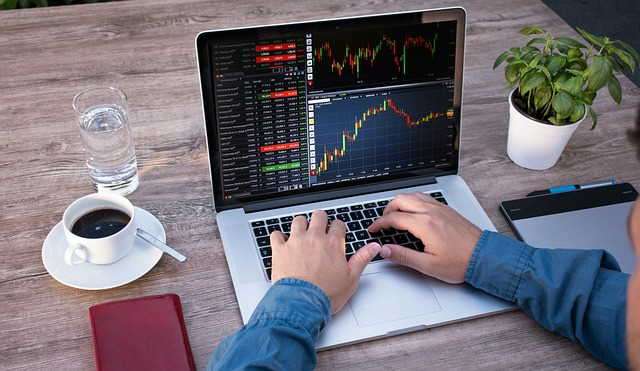It’s a matter of temperament.
Scalping and day trading are two styles of trading at the more aggressive end of the scale. They both seek to profit from market movements over a short period of time.
Newcomers to trading should take heed: only 13% of day traders were consistently profitable over a six-month period, per a University of California study.
Most traders want to be part of that 13% but seldom spend the time necessary to develop a strategy that will get them there. Successful traders are diligent in limiting losses (at pre-determined stop-loss levels), avoid over-exposing their capital in the market and are conservative in their gearing.
Scalpers attempt to profit from small moves in an asset price, multiple times a day. Time in the market can last seconds to a few minutes, rarely longer. These price movements are typically amplified by leverage, such as found in derivatives like Contracts for Difference (CFDs).
An aggressive scalper can open dozens and even hundreds of positions a day. Targets are small, often just a few pips (the smallest change in price in a forex pair). Almost all positions are closed during the day. Timeframes up to 15 minutes are used, though 1-5 minutes are more common.
Day trading is common in forex and CFD trading, where positions are closed out at the end of the day. A combination of different timeframes is used on charts to fine-tune the best point of entry, anything between one-, five-, 15- and 30-minute charts.
The intensity of day trading is much lower compared to scalping. A day trader usually opens trades at the beginning of the trading day and closes them when the trading session ends. No trades are left open at the end of the day – partly because there are swap costs in doing so, but also because markets can drastically change overnight, turning a profit into a loss.
For those with a less aggressive temperament, position and swing trading are the preferred methods of gaining exposure to the market. These are recommended for inexperienced traders, enabling them to build confidence in the market at a more measured pace before attempting more aggressive styles such as scalping and day trading.
Position traders hold positions for a long period of time, often months or even years. The potential gains are less exciting than scalping and day trading, which involve much shorter time frames.
Swing traders will hold a position for longer than a day, or perhaps several weeks. The aim is to capture a trend as it develops and exit before it exhausts itself.
A trader’s earnings depend not on time but volatility (market price movements). To the experienced trader, volatility is an ally. Markets can move up and down with varying speeds, and fast moves present opportunities for faster profits (or losses).
What trading style to choose
The main scalping and day trading criteria that determine the effectiveness of a trading approach:
- Temperament. The riskiest traders make a lot of trading decisions within one minute. Others may spend several hours on just one trade.
- Volatility timing. The prominent swings occur at a predetermined time, either at the junction of trading sessions of different time zones or at the moment of economic news release. In addition, each trading session has its unique style of price changes.
- Liquidity. The more often a transaction is made on the currency market, the more commissions a trader pays. The commissions are minimal precisely because of excessive liquidity on super liquid instruments such as EUR/USD, USD/JPY, GOLD, and BTC (bitcoin).
Scalping is most commonly observed in the forex market where trader look for micro movements in price and exit at the first sign of a reversal in trend.
Closing positions overnight ensures protection from the morning “gap” (sharp jump or drop in price) and allows sleeping well at night without considering the results of night trading.
Check your broker has fast and accurate data
Speed is another essential factor for scalpers, no less critical than liquidity, so the choice of broker is crucial. A scalper constantly analyses price charts and makes decisions based on this data, so the broker must provide quick access to the information necessary for analysis: prices, news, charts of foreign indices, signals, statistics, etc. As a consequence, fast scalping trades require an intermediary with an unloaded server so that, at the right moment, your request does not wait for a few crucial seconds for its turn.
Inexperienced traders
It is difficult to consistently win at scalping and read all micro-movements in price, which is why many prefer day trading over longer time frames (but still exiting all positions at the end of the day).
Inexperienced traders often prefer trading a trend, as there is an abundance of evidence that trend trading is more successful that most other forms of investing (as explained in the Trend Following Bible by Alex Krainer).
Others – whether scalpers or day traders – hunt for markets ranging between tightly defined support and resistance levels and attempt to profit from moves within these ranges. The danger is when prices break out of the range, and new support and resistance levels are established. Skilled traders fully expect this to happen and will set stop-loss levels just outside of the pre-determined range to limit losses in such an eventuality.
How to choose?
Two key parameters to consider when choosing—your temperament and the availability of free time—affect the ability to follow the market.
Choleric/sanguine people make excellent scalpers, as scalping methods imply a good reaction to the appearance of a signal and quick fixation of profits.
For many, scalping will seem too aggressive. The need to react quickly to changing market conditions will cause discomfort.
Conclusion
Whether to scalp or day trade? Try both, develop a working strategy, keep the losses small and settle into a winning style.
About Octa
Octa is an international broker that has been providing online trading services worldwide since 2011. It offers commission-free access to financial markets and various services already utilised by clients from 180 countries with more than 42 million trading accounts. Free educational webinars, articles, and analytical tools they provide help clients reach their investment goals.
The company is involved in a comprehensive network of charitable and humanitarian initiatives, including the improvement of educational infrastructure and short-notice relief projects supporting local communities.
Octa has also won more than 60 awards since its foundation, including the ‘Best Educational Broker 2023’ award from Global Forex Awards and the ‘Best Global Broker Asia 2022’ award from International Business Magazine.












